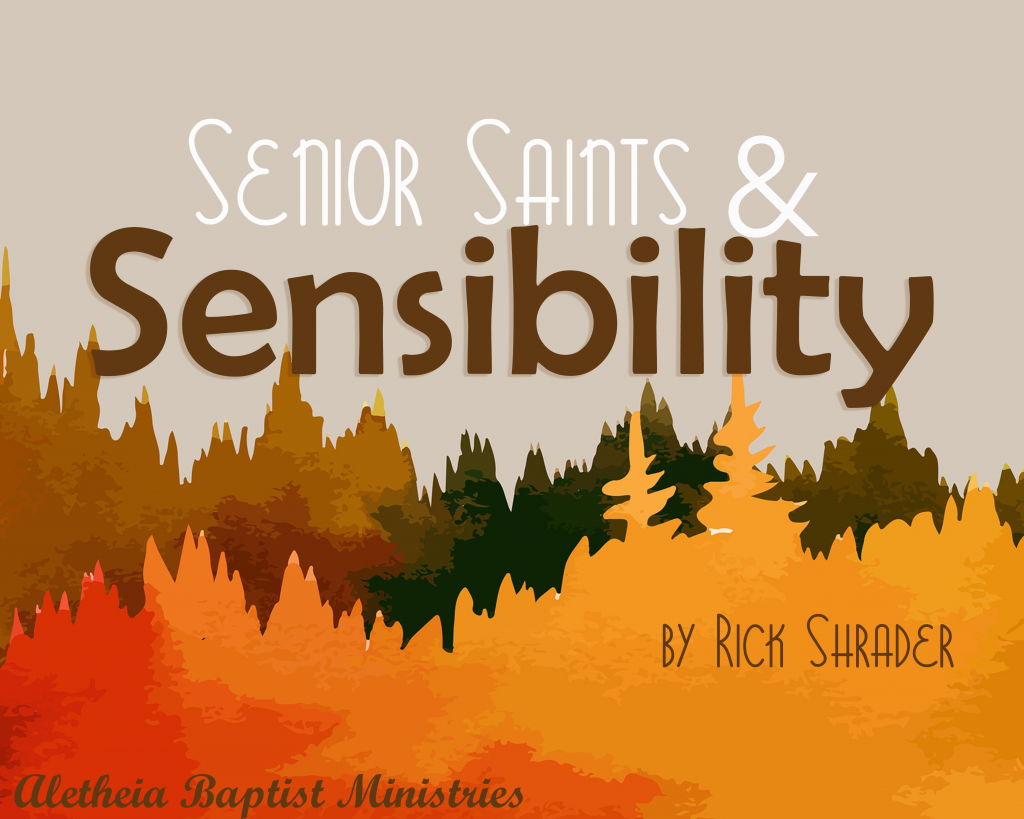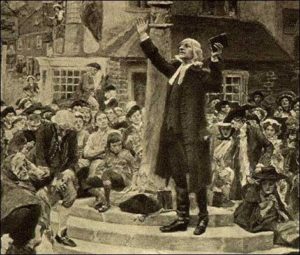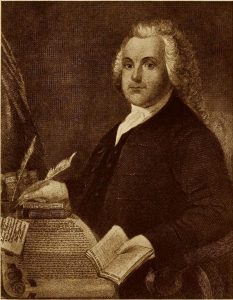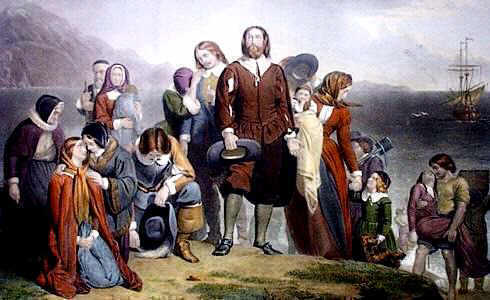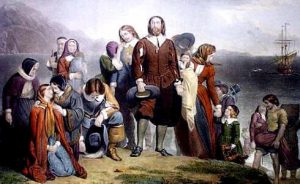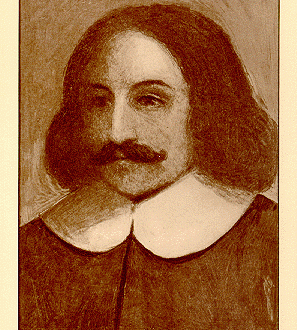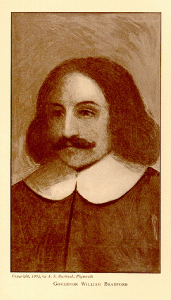The Great Awakening
by Debra Conley
In the 1600’s, the founders’ idea of an earthly kingdom in America lifted their thoughts to a purer, holier God. But just over 100 years later, prosperity, exploration, and the daily tasks of colonial survival soon pushed the initial zeal from its prominent place. Church attendance began to dwindle; the gap was filled with such “remedies” as the Half-Way Covenant, which diminished the importance of a salvation testimony and allowed children of saved members to become members without such testimony. They were allowed half status in the church, assuring congregations of enough members for survival. Others, born in the colonies and never having known the fervor of their ancestors, drifted from those founding religious principles.
The great fundamental preacher Jonathan Edwards responded emphatically to stem the tide and bring the wandering ones back, increasing his preaching against a works’ salvation. In his essay Narrative of Surprising Conversions, Edwards says, “God made it the greatest occasion of awakening to others of anything that ever came to pass in the town.” It was from this phrase that historians claimed the time as the Great Awakening. For the next 30 years, Edwards continued his strong preaching of salvation by grace and not through works, culminating in his most famous sermon, Sinners in the Hands of an Angry God. Thousands were converted.
So great was the revival that one of England’s most effective evangelists, George Whitefield, spurred by the success of Edwards and by the return of John Wesley from the Americas with stories of conversions of the “heathens”, embarked on a mission to General Oglethorpe’s new colony, Georgia. Used to preaching to thousands in great open fields, Whitefield ignored churches that did not welcome him and preached open air sermons throughout the colonies. Benjamin Franklin, one of only a few non-church goers of our founders, was so fascinated by Whitefield that he attended a number of his services and remarked, “It was wonderful to see the change soon made in the manners of our inhabitants. From being thoughtless or indifferent about religion, it seemed as if all the world were now religious, so that one could not walk through the town in an evening without hearing psalms sung in different families of every street.”1 Whitefield continued to preach in the colonies and is buried where he died, under the pulpit of the First Presbyterian Church of Newburyport, MA. Modern scholars still attribute these early religious awakenings to the desire for Colonial Independence.2
Notes:
1. Franklin, Benjamin, as told in Pilgrims in Their Own land (Boston: Little, Brown and Company, 1984)
2. Schweikart, Larry A Patriot’s History of the United States (New York: Penguin Group, 2004) p. 70
